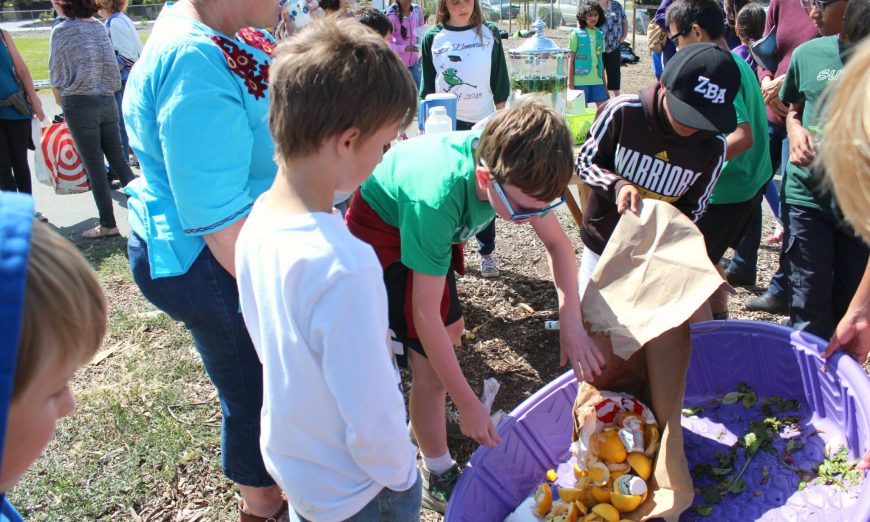Sutter Elementary School’s Froggy Hollow was bustling with activity afterschool on May 31 as the fifth-grade class put on the school’s first farmer’s market. At the school garden, students played music, educated others about the benefits of buying local produce, ran a lemonade and mint water stand, and offered freshly picked produce.
“The kids researched which crops we could grow in March that we could harvest by May 31,” said Jean Lucia, fifth-grade teacher at Sutter. “So they grew kale, beets, radishes and Swiss chard. A lot of this has been a learning process. They also have made different things to sell at the farmer’s market. The last few months the students have been taking mint from the garden, crushing it and making homemade tea bags. They also have an education booth describing different things.”
According to Lucia, the farmer’s market accepted donations for the produce. Proceeds will be donated to the Camp Campbell Outdoor Science School Scholarship Program.
“As fifth-graders, they recognized how fortunate they were to have had their Outdoor School experience paid for by the district,” Lucia said. “Therefore, they’re ‘paying it forward’ and hoping their contribution from the farmer’s market will ensure that other fifth-graders will get an opportunity to attend science camp regardless of their families’ financial situation.”
Lucia explained that the idea for a farmer’s market began in March when the fifth-grade students studied the environmental and health impacts of importing and packaging produce from far away versus buying locally.
Hengrui Chen, 11, helped run the lemonade and mint water stand. He poured the drinks and squeezed juice from lemons picked from the trees of his classmates’ homes.
“We’ve been learning how far our produce has to travel to get to Santa Clara,” Chen said. “For example, apples can come from Asia and bananas come from Brazil. These products have to travel tens of thousands of miles to get here. Airplanes and trucks release greenhouse gases that are bad for the environment. So buying produce locally would reduce global warming.”
At the farmer’s market, Arnav Talati, 11, educated others about food miles, the distance a food item must travel to get to its consumer.
“Earlier this year, for a research project, we located fruits and vegetables at supermarkets and found out where they came from and how many miles they traveled,” Talati said. “At this farmer’s market, we taught people to think about whether they want to buy grapes grown from halfway across the world or whether they should buy grapes grown in California.”






